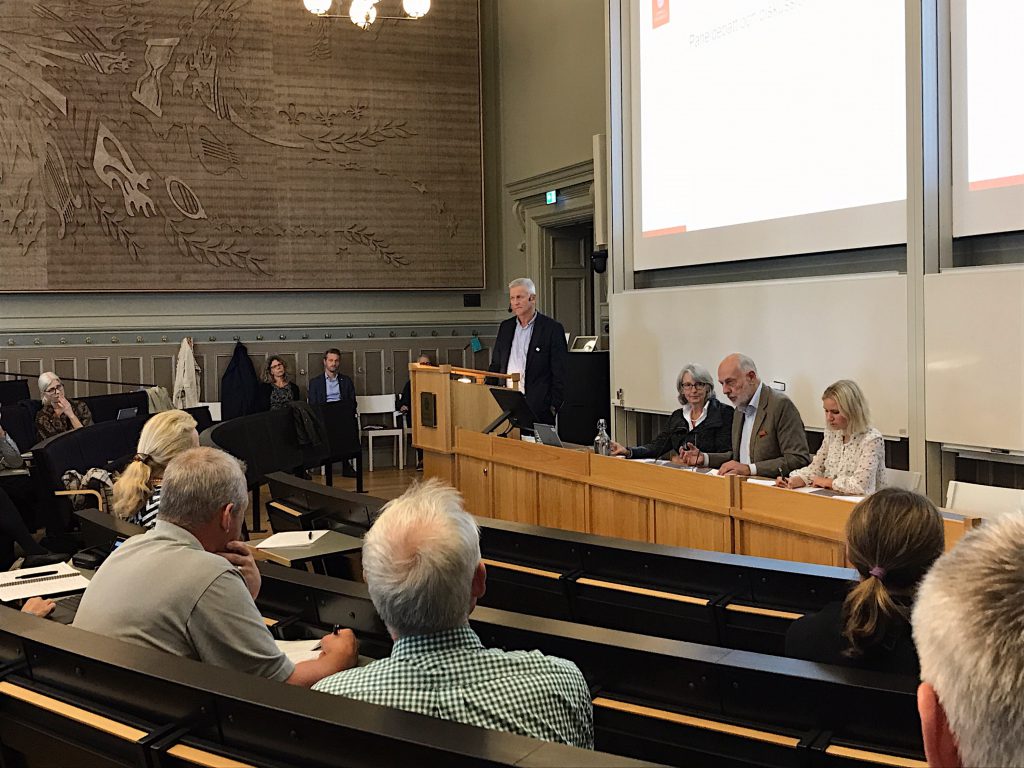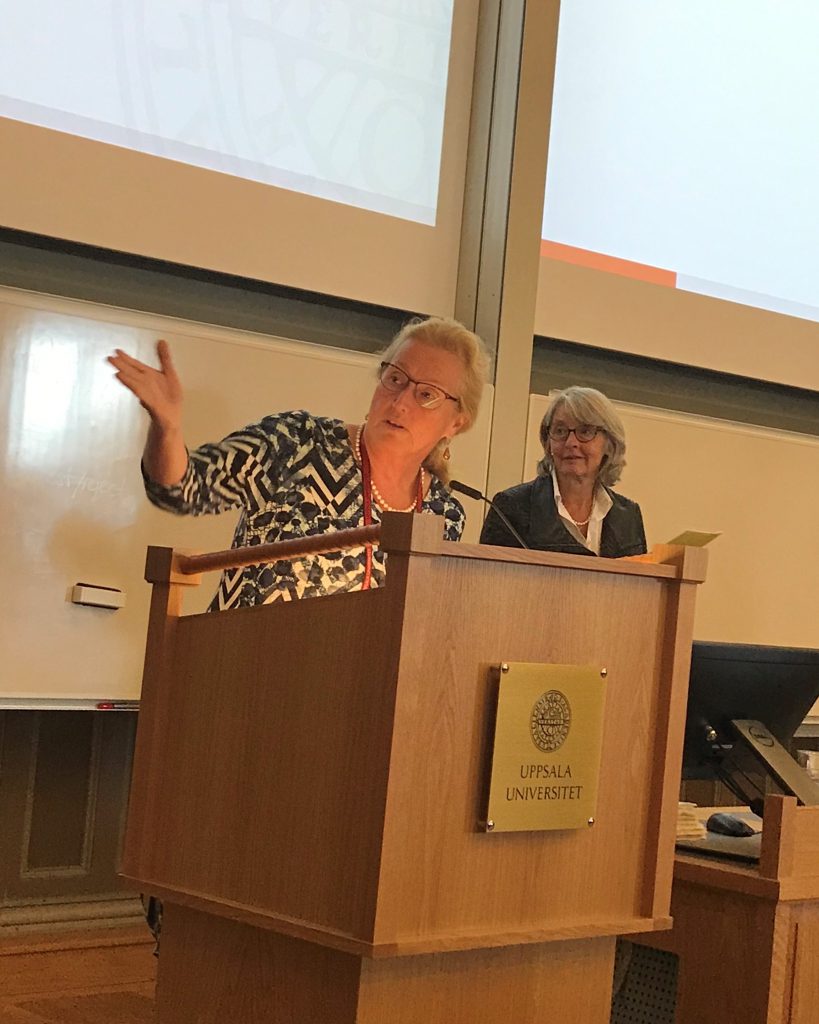Today, at the first University Board meeting of the autumn, I requested that the University’s current Appointment Regulations* be opened for review and revision. It has been a while since this was last done, and this document governs an area that is absolutely crucial for the University’s future: our ability to recruit, retain and develop the very best researchers and teachers. Investing in conditions and career paths for all our creative and successful staff is unquestionably the best foundation we can lay for maintaining a leading international position at least as long into the future as we have in the past.
These are issues I am deeply committed to and numerous projects are in progress, in different phases, to identify and implement the essential measures in this area.
For some time now, Uppsala University has been signed up to the European Charter & Code, which is intended to promote the development of an attractive, open and sustainable European labour market for researchers. This means we have undertaken to work continuously to improve working conditions and career support for researchers and to follow fair, transparent recruitment procedures. Implementation is in full flow. For example, we are testing online career support for early career researchers and are carrying out a translation project to increase parallel language use. It is satisfying to see that the amount of documents and information in English is increasing. This work needs to continue.
With regard to talent recruitment and retention, we have examined our recruitment procedures in a recently completed internal investigation. This came about in the context of a report from the Swedish Association of University Teachers and Researchers (SULF) that attracted a good deal of attention. The report painted a sombre picture of the situation at higher education institutions, with many fixed-term appointments, short advertisement periods and few applicants for positions. As we looked at different categories of staff in greater detail, it is hard to make direct comparisons, but in general the situation in Uppsala appears somewhat better, particularly regarding numbers of applicants and advertisement periods. Having said that, the patterns are similar in some respects. The situation in the academic departments is complicated. The high ratio of external funding makes for a lack of continuity and makes it difficult to plan finances and teaching resources. There is no doubt that increased direct government funding for universities would be a significant step towards dealing with the problem of fixed-term appointments. However, we universities will do what we can. We found that the proportion of fixed-term appointments was too high for satisfaction, particularly among senior lecturers, and we will therefore analyse the situation further. Facts are important for us to take the right action. And we may need to boost the departments’ confidence that resources can be secured in a slightly longer-term perspective.
Further initiatives in this area will start during the autumn. Professors Staffan Svärd and Margareta Brattström will be reviewing the role of head of department, in light of a recent preliminary study. The aim is to ease the administrative burden on heads of department and clarify their strategic role. Maja Elmgren will be looking at the value attached to experience and achievements in teaching and learning, and the Academic career paths project led by Professor Marika Edoff will aim to create a cohesive strategy for career paths at Uppsala University. Different conditions, challenges and needs for academic expertise in the University’s disciplinary domains will be charted and proposed measures drawn up. This is also very much a gender equality project, as women ‘get stuck’ in research appointments to a greater extent than men. We need to create good arenas and discussion on these issues – to reach agreement on what we need to do across the University and at what level of the organisation.
In combination, these efforts will create a solid foundation for revising our Appointment Regulations so that they support the University’s talent recruitment, retention and development systems so as to guarantee continued success.
* The Appointment Regulations determine, under the Higher Education Ordinance, the teaching positions that may exist at the University and regulate the University’s work on the recruitment and promotion of teachers.


